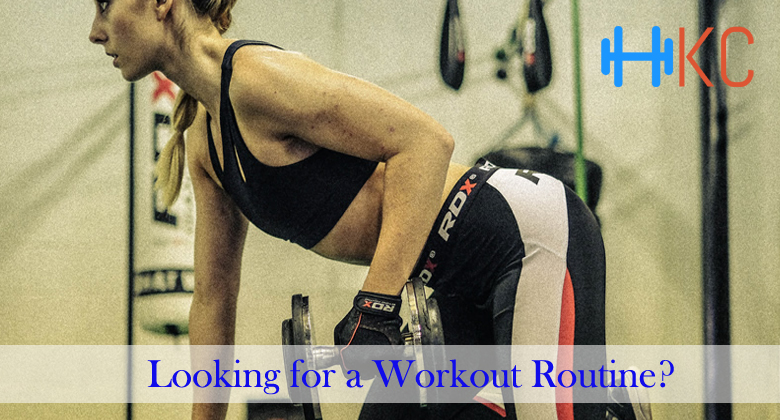Did you know that one out of every 10 premature deaths are caused by a lack of movement and/ or exercise? Did you further know that people who don’t exercise run a higher risk of depression than those who do exercise? Or that non-exercisers get sick more often than those who enjoy a daily jog (or some other type of exercise)?
It’s all true. Moving your body on the regular keeps you healthy, lengthens your life, and makes you happier on the whole. However, if you’re like most people, you have a hard time trying to work movement into your day.
Truth be told, you don’t have to spend two hours in the gym each day to add movement to your life. If you’re not many people today, you don’t even have an hour to spare.
But there is good news. You don’t have to get your daily allotment of movement all at once. Even five minutes of movement stolen here and there throughout the day can make a difference. If you want to add more movement to your life but don’t have much time for the gym, here are seven ways to integrate movement into your daily life.
1. Change Your Mind
While it isn’t necessary for you to make a commitment to workout seven days a week, it is necessary for you to change your mind about movement. If you do not commit to moving a little bit throughout the day, every day, you’ll never do it.
Before you start, think of some ways that you can incorporate movement into your life. Can you take the stairs more? Take a walk at lunch? Do some lunges in the bathroom during your break?
Write all of your ideas down. Keep this list handy so that as you are developing the habit of incorporating movement into your life, you’ll have some ideas to keep you going.
This will help you make a habit of it. Mental preparation is just as important as actually doing the physical work. It is the element that propels the physical work.
2. Invest in a Standing Desk
Like move people, you probably have to spend between six to eight hours a day working at your desk. But there is no rule that says you have to do that work sitting down. Investing in a standing desk allows you to “mini-workouts,” like calf raises, yoga moves, or other types of movement.
However, if you invest in a treadmill desk, you increase your opportunity to work a workout into your day, all without stepping foot in a gym. Incidentally, there is also such a thing as a bike desk if biking instead of walking in place is more your speed.
Over the course of time, you can work up to standing more and more throughout your day. If you spend a good portion of your day standing, you don’t have to do strenuous workouts. Rather, you’ll be moving constantly.
Finally, you should remember that even if you do nothing but stand for part of the day, your body will benefit because you are tapping into the the NEAT factor. NEAT stands for “non-exercise activity thermogenesis.” Basically, what this means is that you’ll still burn calories even if you’re just standing.
3. Workday Movement Opportunities
Getting some movement in can be as simple as parking as far as you can from your work building. It can also mean that you take the stairs between floors or use a printer or copy machine on another floor. When you’re getting coffee on your break take an extra lap or two around your floor.
When you’re at your desk stand up when you are talking on the phone. Do squats when you are standing at the filing cabinet.
Though these small activities don’t seem like much, they offer you an easy way to get some extra movement into your day.
4. At Home
If you spend any time in front of the TV, you have time to move a bit. During the
commercials, take the time to do some lunges or to plank for 30 seconds. Television programs usually have commercial breaks about every 20 or 26 minutes or so.
Additionally, turn your household chores into an opportunity to get your blood pumping. Mopping, scrubbing, vacuuming, and other activities can get your blood pumping if you do them vigorously enough.
5. Walk or Ride Your Bike
If you live in a walk- or bike-friendly city, why not walk or bike to work? You have to go to work, anyway, so why not make your commute a part of your non-workout workout?
Granted, it’ll take a bit more time to get to work, so you’ll have to build in some extra time for the commute. However, the benefits of doing this outweigh the disadvantages. This is especially true if your commute requires you to travel a couple of miles: This kind of commute counts as a workout in and of itself. No trip to the gym after work required.
You can also turn errands into exercise. You can even do your grocery shopping without a car if you prepare ahead of time. To transition from driving to do your errands to walking or riding to do your errands, invest in either a basket for your bike or a backpack with a long handle and wheels for your walks. These setups will allow you to carry at least a small amount of stuff as you do your daily errands.
6. Walking Meetings
Most of your work meetings probably take place in your office’s conference room or at the very least, a table that’s big enough to accommodate all those involved with the meeting’s agenda. But no rule exists that says you have to sit for a meeting.
If your your meeting group consists of just a few people, then take it outside. Use a voice recorder to record your thoughts and a mobile meeting app to keep track of your agenda.
7. Take Advantages of “Forced” Breaks
Life seems like a series of hurry-ups-so-you-can-wait. You wait for the doctor at the doctor’s office. You stand in line at the grocery store or at the pharmacy.
When you’re at the doctor’s office, take a walk if you can. Check with the receptionist to see how long he/ she thinks it’ll take for the doctor to see you. A 20-minute wait could net you a 10- or 15-minute walk.
Standing in line could allow you to do some time to do some ankle rolls or some isotonic exercises.
Last Thoughts on Integrating Exercise Into Your Day
Integrating exercise into your day doesn’t have to be difficult. Taking the stairs instead of the elevator, walking during your lunch break, or taking your bike to work all count as ways you can add movement into your day.
However, as important as these little workout breaks are during the course of your day, they aren’t nearly as important as the mental shift you need to make. Any new habit requires a commitment. Your ability to commit to moving a little every day counts as the most important element of your new routine.
If you do not commit to integrating movement into your day, it is likely that you won’t meet with the success you desire. It is your desire coupled with the little bursts of movement that you do each day that makes all the difference.














